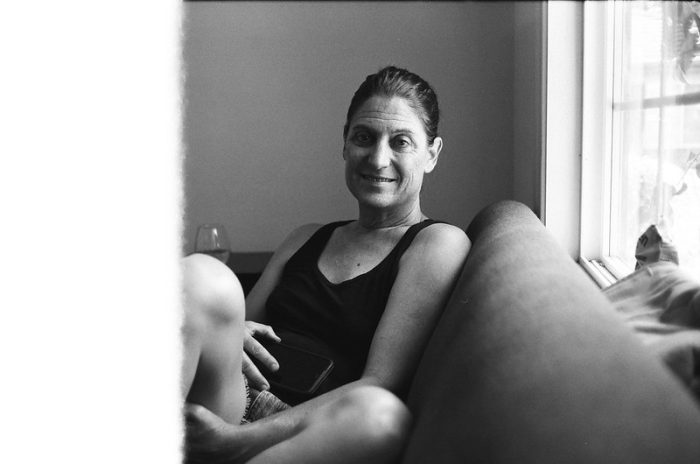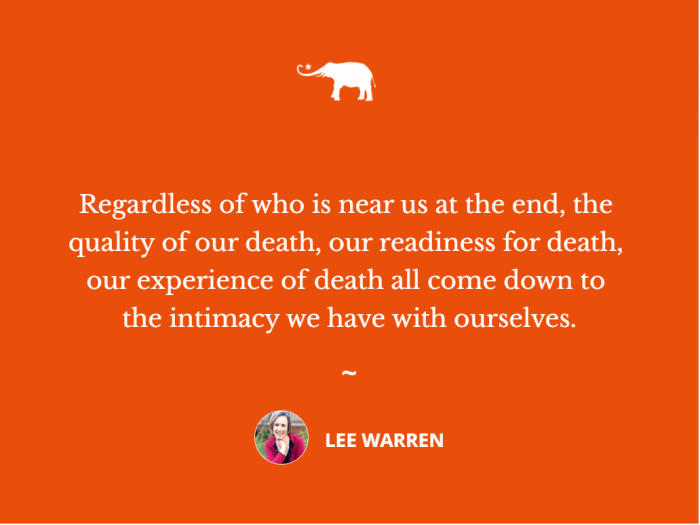There were 200 people at the funeral. A brilliant and beautiful young woman had died suddenly in a car crash.
Funerals are one of those old-school traditions that endure while so many others have fallen away. They serve important functions. In addition to honoring the beloved dead, they help the living process their grief, including their regret, confusion, and coming to grips with a strange new world that does not contain their dearly departed’s physical presence.
All deaths, but certainly the sudden death of a healthy and vital young person, are hard to grapple with. The rational mind cannot make sense of it. The questions on our hearts include: What is death? How does it work? What does it mean? Where do we go? Why did it happen?
Of course, there are no answers. But the funeral ritual allows us to sit in those questions, shake our heads in collective dismay, and be in the great mysteries together.
At the funeral, I overheard someone, new to our community, express surprise that 200 people showed up, followed quickly by concern there wouldn’t be that many folks at her funeral. There was real anxiety. This had deep meaning for her. I could tell she was suffering in her inquiry.
While funeral attendance may attest to our reach and impact in life or give clues as to how extroverted we were, it’s far from the most important aspect of death. The real, deeper questions, in my opinion, have to do with the quality of our transition.
With regard to death and dying, the most important relationship is with the self. During the dying process and at the moment of death, all there is us and our soul (or essence or consciousness or higher self or god). Regardless of who is near us at the end, the quality of our death, our readiness for death, our experience of death all come down to the intimacy we have with ourselves. And like any relationship, the quality and depth can vary.
There’s a famous quote, attributed to multiple people, that reads: “No one, on their deathbed, ever said, I wish I had spent more time at the office.” The phrase is often followed by encouragement toward more important things than making money or achieving goals. It’s a reminder that spending time with family, traveling the world, engaging in much-loved hobbies, or enjoying natural beauty is what we actually remember as we pass from this life.
Our external lives, including our close relationships, where we traveled, and how we spent our time are important to the quality of our experience. Spending less time working and more time prioritizing enjoyment is good advice. Additionally, if at the moment of our death, all we have is our relationship to self, I want to suggest that we might benefit from investing in our relationship with our own internal world.
Because at the end of our lives, we very well might be asking some of these questions:
>> Was I able to fully incarnate?
>> Was I able to really inhabit this container that was my body?
>> Was I able to be in awe of my own inexplicable existence?
>> Was I able to be. Just BE.
>> Was I able to emanate the unique essence of this one-time-only expression of humanity?
>> Was I able to savor my own true brilliance?
>> Was I able to marvel at this dynamic and animated self?
Wise ones the world over tell us that the essential things in life are eternal and infinite. Yet it’s easy to forget that our bodily expression is temporary. Being alive is vivid and visceral and real. The tastes, the feels, the struggles, the joys, the complexity—it is such a full, varied, and all-encompassing experience.
The death of another is an acute reminder that our lives will also end. The fact that our life will end creates pressure to make the most of our time. I have a hunch that the “life review” that often comes during our last moments and days, is as much about the inner experience as the outer experience.
What does it look like to contemplate our inner world in preparation for death? I believe it has less to do with our accomplishments and contributions or even how we loved and more to do with awareness and appreciation of our miraculous existence.
These are the kinds of questions I’m asking myself these days:
1. Am I able to bring awareness to the fact of my aliveness?
2. Am I able to more fully embody?
3. Am I able to be present with uncertainty and mystery?
4. Am I able to feel and relate to my soul essence (Self, God, Spirit)?
5. Am I able to trust the unfolding nature of reality, the divine orchestration, the web of life?
6. Am I able to see how much I was wanted and how much I am valued for just existing?
7. Am I able to notice the great good fortune of so many beautiful moments?
The above questions, paradoxically, serve both as a guide for a good death and a rewarding life. The truth is, how we do our lives is how we do our deaths.
The famous poet Rainer Maria Rilke said:
“Death is our friend precisely because it brings us into absolute and passionate presence with all that is here.”
The unanswerable questions about death invite us to ponder our lives with the same amazement. The mystery of death is the same as the mystery of life.
We really don’t know when we will take our last breath. Preparation we do now for a more robust relationship with the self will serve us as we exit. Death and life are two sides of the same coin. Two directions on the same spiral. Two expressions of the same soul. Two strands in the same thread.
Or, as Rilke said: “Two halves of the same circle.”
~








Read 1 comment and reply